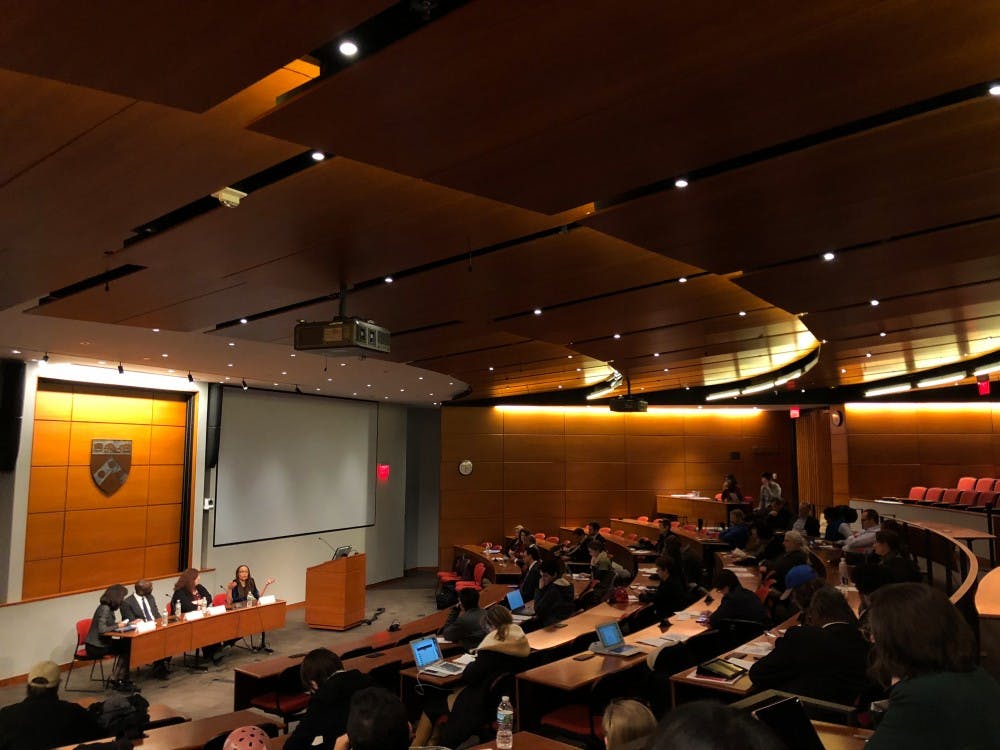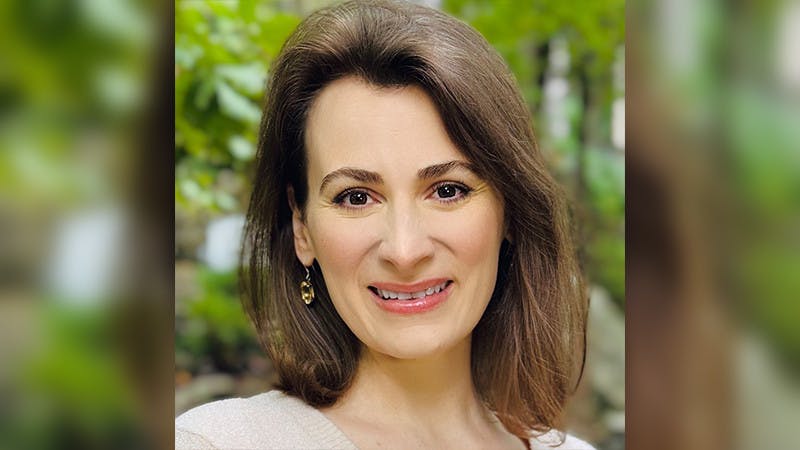
Genetics and Biology professor Sarah Tishkoff at Penn Law's Fitts Auditorium.
Credit: Giovanna PazPenn’s Teach-In on the "production, dissemination, and use of knowledge" began on Monday at the Fitts Auditorium in the Penn Law School building with an interdisciplinary discussion and panel about knowledge and race with three Penn professors.
The teach-in, hosted by the Faculty Senate and co-sponsored by the Undergraduate Assembly and the Student Committee on Undergraduate Education, is a four-day event that will feature lectures and panel discussions on the value of knowledge in the modern world. It is the first teach-in at Penn in nearly 50 years, with the last one held in 1969.
This year's teach-in was spearheaded by the Faculty Senate, which was determined to revive the historic moment set in 1969.
Although the teach-in began with earlier sessions on Monday, the afternoon event, entitled “Knowledge Production, Communication & Impact in the 21st Century,” was the official opening program.
Tracey Matisak, a journalist who has worked with FOX Philadelphia, PBS, and National Public Radio, moderated a panel consisting of Penn professors Sarah Tishkoff, Dorothy Roberts, and John Jackson Jr.
All of the speakers discussed their research in relation to the topic of race.

Tishkoff, who holds appointments in both the College of Arts and Sciences and the Perelman School of Medicine, spoke of her research on African genetic diversity, while Jackson, the dean of the School of Social Policy & Practice, spoke about the anthropological meaning of race.
Meanwhile, Roberts, who is a professor of law, sociology, civil rights, and Africana studies, discussed the intersection of the biological and social sciences in the discussion of race.
University Provost Wendell Pritchett gave the introductory remarks, stressing the importance of events like the teach-in and Penn’s role as a force for spreading knowledge.
“The teach-in in the events and programs planned for the week are going to seek to take a fresh look at a question that once seemed self-evident: What is the University for?” Pritchett spoke to the audience.
Lucas Manis, a graduate student studying economic policy analysis at University of Maryland-Baltimore County, came to Penn for the teach-in and said that he found the opening event to be “very engaging.”
“I really like what was said about knowledge being an ethical issue: sort of, what do we want to study and why and whether or not we should,” Manis said.
Teri Inverso is a mother of two Penn graduate students from Bucks County, Pa. who came to the teach-in for the full four days to take advantage of the lectures.
Inverso said that coming to the teach-in and having access to so much knowledge has been like a dream.
Nonetheless, Inverso added, she felt that events such as these reminded her of the big divide between the academic community and the rest of the American public.
“I feel a little sad that, it’s great that people are here but I feel that more people need to be educated on topics like this,” Inverso said. “I can see that there is such a gap from the public.”
The Daily Pennsylvanian is an independent, student-run newspaper. Please consider making a donation to support the coverage that shapes the University. Your generosity ensures a future of strong journalism at Penn.
Donate






